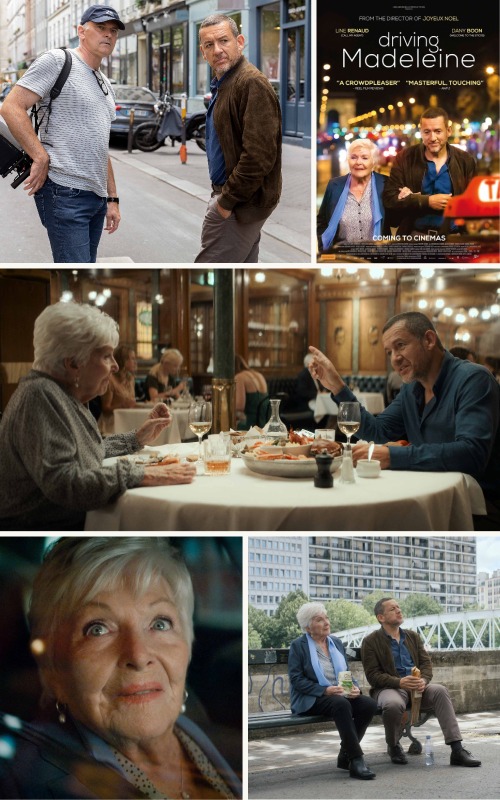 DRIVING MADELEINE/ UNE BELLE COURSE, France, 2022. Starring Line Renaud, Dany Boon, Alice Isaaz, Jeremie Laheurte. Directed by Christian Carion. 91 minutes. Rated MA (A scene of strong sexual violence)
DRIVING MADELEINE/ UNE BELLE COURSE, France, 2022. Starring Line Renaud, Dany Boon, Alice Isaaz, Jeremie Laheurte. Directed by Christian Carion. 91 minutes. Rated MA (A scene of strong sexual violence)
An unanticipated joyful entertainment. There have been two Oscar-winning films about chauffeurs and passengers – Driving Miss Daisy and The Green Book – where the interactions between passenger and driver have bonding and transforming consequences. The English title draws on Driving Miss Daisy. There can be a variety of translations of the French title, ‘A Lovely Ride’, one suggesting ‘A Great Race’. However, given the interactions between the two characters and their self-revelations, one might translate as ‘A Good Run’ (a good/beautiful run through life, and engaging run for your money).
Set in Paris, this is a brief film – 90 minutes – but audiences might have welcomed even more. The audience shares the taxi ride with Madeleine (Renaud) and Charles (Boon), seeing some of the famous sites, but spending the time driving through various neighbourhoods, looking and absorbing the atmosphere. We are first introduced to the driver, Charles, the subtitles referring to him as a “jerk”. And this is what he seems to be, grumpy, being told which route to go and ignoring it, angry phone calls to his brother, in danger of losing his taxi licence with police points against him. He agrees to a request that takes him right across Paris to drive an elderly lady.
The elderly lady is 92-year-old Madeleine, with Renaud much the same age in this performance. Renaud has been a popular French singer since the 1950s.
Charles has to drive her to an aged care home because she has had a fall and is unable to stay in her house.
This seems rather ordinary but, just as he listens to Madeleine and her chatting, her questions, Charles becomes beguiled by her. So do we. And more rapidly than Charles does. Madeleine is most engaging, pleasant, getting Charles to listen, to speak a little, to smile. But, importantly for Madeleine, she is able to tell Charles something of her life story – and we see it in flashbacks. In fact, as we see her story we are reminded of key elements of 20th century history, France in World War II, American liberation, relationships with American GIs, children, marriage, domestic violence, courts and prisons, the Vietnam war. . . Isaaz plays the young Madeleine – charming but experiencing domestic violence, with a loving personality towards her son.
And, as the couple spend the day, Madeleine wanting to visit a plaque commemorating the death of her father at the hands of the Nazis. As she sits on a bench near the river, reminiscing, Charles becoming, as we are, absorbed by Madeleine’s story and her personality. Of course, Madeleine is able to elicit from Charles something of his story, aged 46 (half her age, she observes, could be her grandson – and in the delightful scene, she plays on this in saving Charles from the gendarmes who want to give him a ticket for crashing a red light). There are no flashbacks to Charles’ story, just his telling something of his story.
The trip across Paris has to come to an end but Charles delays it, taking Madeleine to a plush restaurant for a final meal, delivering her to the door, and some sad farewells. Sensitive direction by Carion (Joyeux Noel, the moving World War I drama).
We can guess something of the ending but it is a pleasure to experience it – but, not without tears, Charles’ and ours. Here is a wonderful happy-sad ending to the drive. And, wait for the final credits where there is a lovely reminiscence and dance sequence of 1944 Paris.
Rialto
Released 22 June